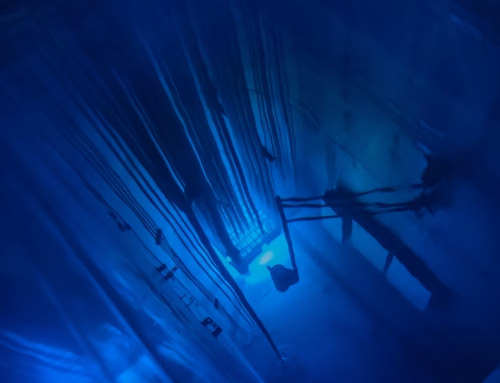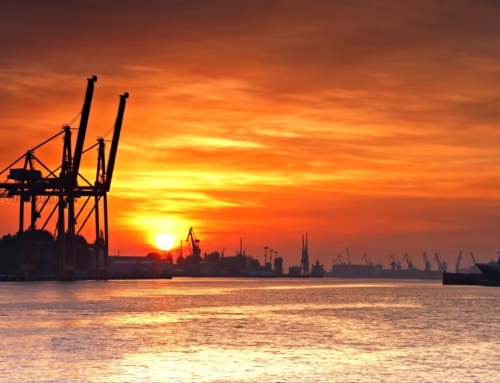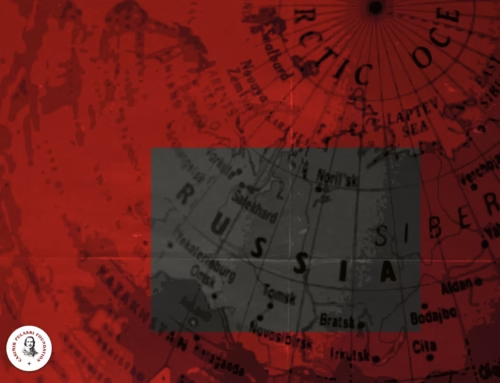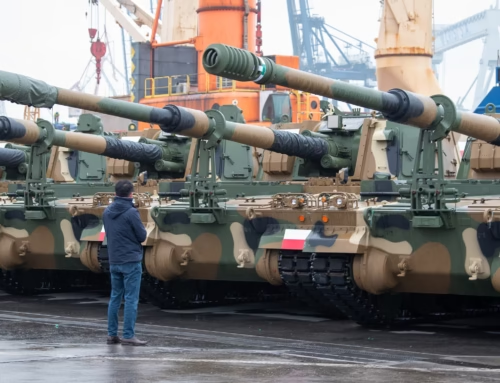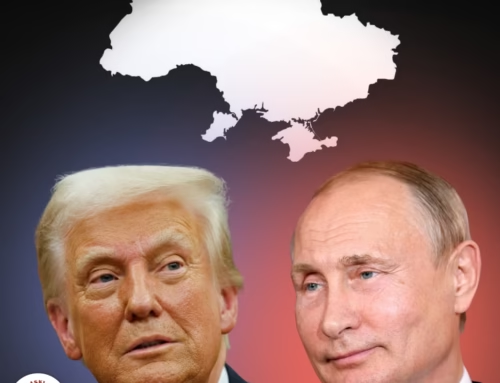Bundeskanzler Scholz
Autor foto: Domena publiczna

The shift in Germany’s Ostpolitik: Implications of new energy policy for the European Union?
28 listopada, 2022


Bundeskanzler Scholz
Autor foto: Domena publiczna
The shift in Germany’s Ostpolitik: Implications of new energy policy for the European Union?
Autor: Tamar Tkemaladze
Opublikowano: 28 listopada, 2022
Pulaski Policy Paper no 27, November 28 2022
Overview
The explosion of Nord Stream gas pipelines became a breaking point in the energy war between Russia and Europe. Handling Nord Stream as a commercial project rather than the Kremlin’s geopolitical tool, Germany’s energy policy lived on as a double-edged sword, which sharpened in today’s European energy crisis. Following the suspension of gas flows in summer 2022 by Gazprom, the sudden massive drop in pressure of the pipeline came as the conclusive signal of the shift, ending Germany’s policy as we knew before. Indeed, the grand taskmaster history left little choice for Olaf Szholz’s previously expressed sympathies towards Social Democratic predecessor Brandt’s Ostpolitik, other than to set a new course. Berlin already announced an ambitious plan to increase LNG deliveries and drastically reduce dependency on “unreliable” Russian gas by mid-2024. As it unfolds, Germany’s emerging strategy in energy policy will have lasting political and economic consequences for the country and the European Union.
Germany’s Ostpolitik
The path to becoming Russia’s top energy customer was forged in the Cold War context when Berlin adopted a diplomatic stance vis-a-vis Moscow. The Chancellor Willy Brandt’s foreign policy idea of Ostpolitik was grounded on the premise that closer economic and political ties would lead to positive outcomes.[1] Following the normalisation of USSR-FRG relations in the 1970s, the gas relationship started to flourish.[2] When receiving warnings from NATO, the German head of the gas department claimed that the country would never rely on Russia even for 10% of its gas supply.[3] But it took only several years for the Chancellor Helmut Schmidt to call Russians the most reliable suppliers. The cooperation endured political turmoil’s, geopolitical tensions, crises and reached a new stage through Nord Stream 1 and Nord Stream 2 projects with Putin’s Russia. In 2015, soon after the annexation of Crimea, the consortium of Western European firms signed the deal to double supply capacity through the construction of Nord Stream 2. The leading energy utility companies had vast economic interests in cheap Russian gas. They could profit from cutting down trade and transit revenues.[4] Economically well-off German state governments in Baden-Wurttemberg, Bavaria, and North Rhine-Westphalia, were strong lobbyists of Russian gas, being it cheaper than supplying LNG from gas terminals in Benelux and France.[5] As a result of economic calculations, before the invasion of Ukraine, more than half of Germany’s gas originated from the Russian Federation.
Even though there were certain predictions about Berlin abandoning historic foreign policy after the annexation of Crimea, energy relations were the most evident illustration that its logic was still in place. Russia’s atrocious war has put question marks on the idea of Ostpolitik. Even currently, Germany insists that is not able to join the EU gas embargo.[6] However, with the doomed prospects to resume gas flow in Nord Stream and Putin’s countermeasures to capitalise on Europe’s energy dependency, German policymakers agreed on adopting an aggressive stance.
New Energy Policy
The European Union and Germany moved ahead with combined measures in the energy sector to provide security in light of supply cuts. Berlin settled on a short-term increase in emissions but also on a continuation with the long-term transition, where emission reduction targets remain in place. Changes are depicted as a part of Germany’s overall energy transition.
To ensure energy deliveries, the government postponed the shutdown of nuclear energy plants, revived coal units, and intensified building critical infrastructures such as Liquefied Natural Gas (LNG) terminals and renewable systems. It has been combined with initiatives for energy savings such as a “gas auction model”, which encourages businesses to save gas.[7] For the short-term solution, the government had to buy gas on expensive spot markets. Together with safeguarding supplies, Germany also aims to reduce gas dependency by adjusting the demand side, such as installing efficient electricity-based heating systems. But so far, readjustment in heating systems was constrained by the shortage of labour in the industry.[8] Additionally, the country faces a challenge to deal with the generation of energy from new sources while at the same time, having to guarantee equal nationwide distribution which is already a major issue along the North-South axis.
One of the most significant decisions related to the energy system took place at the end of October 2022, when the Bundestag approved a “defensive shield”, the proposal of a €200 billion relief scheme to protect German companies and households. Meanwhile, many in the government also endorse large price caps for energy-intensive industrial players to ensure they will not exit from German market.[9] Big companies like BASF worry that the state cannot compensate the loss of heavy industries by filling the deficits, leading them to cut operations on the European market and move them overseas.
Implications for the EU and the Member States
Wary of the wider implications beyond Germany, the support package faced criticism from the EU leaders and diplomats. Following Berlin’s decisions, the French and German governments postponed a major bilateral conference until January because of substantial disagreements over energy and defence. The biggest scrutiny from France came over the “defence shield” that adds to Germany’s previous energy price support measures that are worth €95 billion.[10] Meanwhile, Berlin points fingers at price caps adopted by Paris to push household bills down. It is also sceptical about France’s nuclear plants that according to German politicians, while under maintenance, add pressure on European energy grids. Contrary, the French have long rebuked the German Energiewende for its nuclear phobia.[11]
Interestingly, the 1970s energy crisis includes warnings of European disunity and bilateralism. In fact, the historic context provides evidence of how countries in the European Economic Community did not stand shoulder to shoulder to secure supplies and alleviate economic and financial problems when the energy crisis prevailed. Commission’s proposals for the establishment of frameworks for cooperation and dialogue with oil producers and with other energy consumer countries were not followed by the policy coordination.[12] Even though in response to the emergency in oil supplies, governments initially decided to act together and to diversify gas supplies from an eastward direction, the cooperation did not last long. French, Italian and West German companies and governments supporting them were caught in rivalry. West Germany was especially a vocal critique of France’s secret bilateral nuclear deals in the Gulf States. As a matter of fact, it was the second oil crisis in 1979, which saw the increased cooperation between West Germany and the Soviet Union.
However, it is also important that in this period the EU policy competencies were not established, giving room for a state to act in line with national security needs. It was during gas supply shortages in 2006 and 2009 Russo-Ukrainian gas disputes that we could really discuss the European response. The new crisis was also characterised by division and varying perceptions of Russia as a major energy supplier in the Member States. In 2009 the EU was able to implement the procedures of the 2004 Gas Supply Security Directive.[13] After 2006, Polish government presented a proposal for the creation of a “European Energy Security Treaty” though developing a common energy policy approach remained a challenge. Germany did not derail from Schroder’s track and viewed Russian energy purely in economic and commercial terms, leading to short-lived security concerns. The government dropped energy security from priorities and disregarded tangible measures intended to diversify the natural gas imports.
Thus, the measures directed at diversifying supply and at adjusting demand, as well as the €200 billion energy package adopted by the German government, come on time as the supply will put pressure on prices, pushing the EU and German economies into recession. But what is at stake here is the fragmentation and division in Europe. The newly announced package does not fit the targets of the European Central Bank in its fight against soaring inflation. In European capitals, there is already the feeling that despite the consistent talks on multilateralism, German played a unilateral role when it came to energy decisions such as nuclear energy policy, Nord Stream, or even the recent announcement of the €200 billion relief scheme. Poland’s Prime Minister Mateusz Morawiecki accused Berlin of gaining an unfair competitive advantage and of “destroying” the EU’s internal market.[14] Viktor Orban, which in opposition of the EU made arrangements with Gazprom, in a news conference called the decision “the beginning of cannibalism in the EU”.[15]
The discontent shows the growing realisation for the agreement. The package, indeed, encouraged views that the EU should introduce the common financial instrument to tackle energy crisis. What is more, the energy policy of the EU, Germany and CEE countries, including Poland, has already been shaped by different outlook. The latter often confronted Western European states over the matters of energy security and clean transition. Emissions Trading System (ETS) allowances had already pushed prices up when ETS market became volatile following the war. For this reason, Polish side continues to advocate for reforms to tackle price shocks, as well as improve and streamline the market supervision and monitoring.[16]
Conclusion
- There has been a paradigm shift from purely economic to security matter in Germany’s approach to energy. The recent measures show that the new energy policy that makes turn from Ostpolitik has gained momentum. The country has a well-defined strategic interest to reduce dependency on Russian gas and advance its energy transition. Nevertheless, the historic path dependency in the German energy sector deserves considerable attention. There are certain limitations on how much power the government can exercise vis-a-vis other stakeholders, as well as how it can act based on the neighbouring energy markets. Added to that, the Scholz cabinet makes decisions in a highly uncertain environment that not only needs to create stability in the energy system but designate the less painful path to the target.
- There is a need for a balanced European approach to support households in times of social hardships. The efforts to agree on a common European gas price have failed so far. Berlin’s unilateral approach towards tackling the current energy crisis seems like a new challenge for European solidarity. The European Union is expected to face the problem of maintaining a level playing field between competitors considering subsidy races in the Member States.
- Different ad hoc decisions by individual states might hinder coordination in the energy transition as new policies determine the difference in consumer bills across the Union. The EU climate policies have already been more challenging and costly for less wealthy states in CEE, already reflected in the previous demands to revise the ETS and EU’s 2050 Low Carbon Roadmap. Considering short-term and mid-term emergency solutions, the EU states will have to collaborate with outside actors together to balance them with climate objectives.
Author: Tamar Tkemaladze, external contributor
[1] Marco Siddi, “German Foreign Policy towards Russia in the Aftermath of the Ukraine Crisis: A New Ostpolitik?,” Europe-Asia Studies 68, no. 4 (April 20, 2016): 665–77, https://doi.org/10.1080/09668136.2016.1173879.
[2] Angela E. Stent, ed., “From Moscow to Bonn: The Consolidation of Ostpolitik and Westpolitik, 1970–1980,” in From Embargo to Ostpolitik: The Political Economy of West German-Soviet Relations, 1955–1980, Cambridge Russian, Soviet and Post-Soviet Studies (Cambridge: Cambridge University Press, 1982), 179–207, https://doi.org/10.1017/CBO9780511562969.009.
[3] Patrick Wintour, “‘We Were All Wrong’: How Germany Got Hooked on Russian Energy,” The Guardian, June 2, 2022, sec. World news, https://www.theguardian.com/world/2022/jun/02/germany-dependence-russian-energy-gas-oil-nord-stream.
[4] Paplowski, “German Energy Companies Lobby for Nord Stream 2,” OSW Centre for Eastern Studies, September 21, 2016, https://www.osw.waw.pl/en/publikacje/analyses/2016-09-21/german-energy-companies-lobby-nord-stream-2.
[5] Ibid.
[6] Yoni Wilkenfeld, “Risks and Requirements for German Gas and Energy Policy,” GIS Reports (blog), September 8, 2022, https://www.gisreportsonline.com/r/german-gas-policy/.
[7] Giorgio Leali, “Germany Unveils New Measures to Cut Usage of Natural Gas,” POLITICO, June 19, 2022, https://www.politico.eu/article/germany-unveils-urgency-gas-saving-package/.
[8] Yoni Wilkenfeld, “Risks and Requirements for German Gas and Energy Policy,” GIS Reports (blog), September 8, 2022, https://www.gisreportsonline.com/r/german-gas-policy/.
[9] Kristie Pladson and Neil King, “How Germany Is Coping without Russian Gas,” DW.COM, November 2, 2022, https://www.dw.com/en/how-germany-is-coping-without-russian-gas/a-63621148
[10] Hans Von Der Buchard, “Germany Lashes Back at Energy Plan Critics, Pointing to French Subsidies,” POLITICO, October 5, 2022, https://www.politico.eu/article/germany-criticism-energy-subsidies-france-eu/.
[11] Brian Bonner, “The Energy Divide between Germany and France,” GIS Reports (blog), April 22, 2022, https://www.gisreportsonline.com/r/germany-france-energy/.
[12] Francis McGowan, “Putting Energy Insecurity into Historical Context: European Responses to the Energy Crises of the 1970s and 2000s,” Geopolitics 16, no. 3 (July 1, 2011): 486–511, https://doi.org/10.1080/14650045.2011.520857.
[13] Ibid.
[14] Emily Rauhala et al., “Germany Takes Heat as E.U. Leaders Meet to Discuss Energy Crisis,” Washington Post, October 7, 2022, https://www.washingtonpost.com/world/2022/10/07/eu-energy-crisis-germany-criticism/.
[15] Ibid.
[16] Wojciech Dabrowski, “Polish Energy Transition Path in the Light of Revision of ETS Directive,” POLITICO, May 11, 2022, https://www.politico.eu/sponsored-content/polish-energy-transition-path-in-the-light-of-revision-of-ets-directive/.

